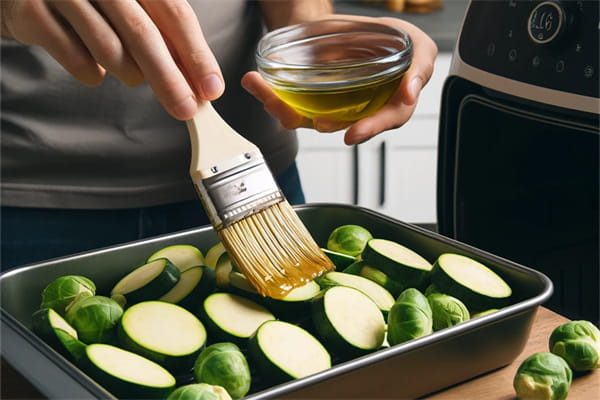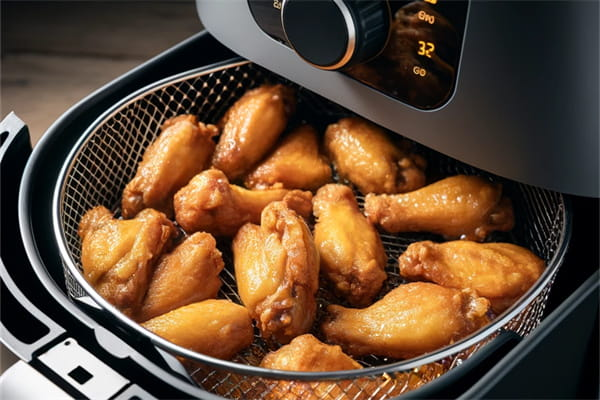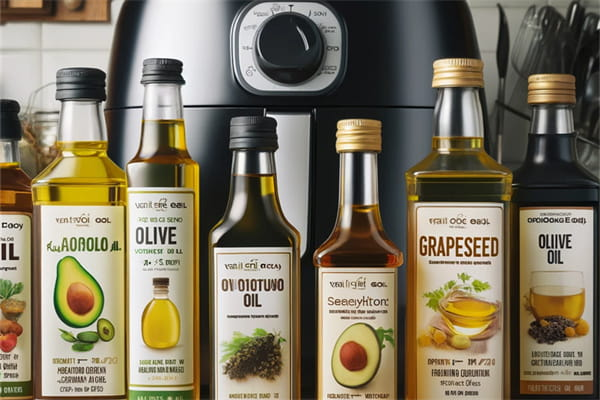Cooking and health enthusiasts often find themselves asking, “Does the air fryer need oil?” Air fryers have taken the culinary world by storm, promising a tastier and healthier alternative to our traditional fried foods. By harnessing rapid air technology, this innovative kitchen appliance circulates hot air to cook food, giving it the crispy, golden-brown texture we crave. But the question that leaves many puzzled is, Does the air fryer need oil? Let’s break down the facts and help you understand the role of oil in air frying.
Ⅰ. How Air Fryers Work
Air fryers operate using rapid air technology, which involves a heating element and a powerful fan. The heating element generates high temperatures, and the fan circulates this hot air around the food at high speeds. This process mimics the effect of deep-frying but uses significantly less oil. The hot air cooks the food evenly, creating a crispy exterior while keeping the inside tender. This technology allows you to enjoy fried-like foods with less fat and fewer calories, making it an appealing choice for health-conscious individuals.
Ⅱ. When to Use Oil
Although air fryers are designed to cook food with little to no oil, there are instances where adding a small amount of oil can enhance your culinary results.
1.Enhancing Crispiness

Certain foods benefit from a light coating of oil to achieve optimal crispiness. For example, vegetables like Brussels sprouts, zucchini, and potatoes can develop a beautifully crispy exterior with just a small amount of oil. Similarly, chicken wings and homemade fries achieve a restaurant-quality crunch when lightly brushed or sprayed with oil before air frying.
2.Flavor Addition
Oil can also serve as a medium to add flavor to your dishes. When preparing marinated items or using seasoning blends, incorporating a bit of oil can help distribute the flavors more evenly and enhance the overall taste of the dish. For instance, tossing your ingredients in a bit of olive oil mixed with herbs and spices before air frying can elevate the flavor profile significantly.
Ⅲ. When Not to Use Oil
In many cases, the air fryer can deliver excellent results without any added oil, especially for foods that are naturally fatty or pre-prepared.
1.Naturally Fatty Foods
Foods that naturally contain higher fat content, such as certain cuts of meat or fatty fish like salmon, do not require additional oil. The inherent fats in these foods will render and circulate during the cooking process, providing enough moisture and crispiness. This makes the air fryer a convenient option for cooking such items without extra oil.

2.Non-Stick Surfaces
Most air fryer baskets and trays come with a non-stick coating, which helps prevent food from sticking without the need for additional oil. This is particularly useful when cooking pre-prepared or frozen foods, such as fries, chicken nuggets, or spring rolls, which already contain some oil from their initial preparation.
Ⅳ. How to Add Oil
If you decide to use oil in your air fryer, it’s essential to do so correctly to achieve the best results.
1.Spraying vs. Brushing
One of the most efficient ways to add oil to your food is by using an oil spray bottle. This method ensures even distribution and prevents the food from becoming overly greasy. Alternatively, you can use a brush to lightly coat the food with oil, giving you more control over the amount used.
2.Oil Quantity
When using oil in an air fryer, less is often more. Typically, a tablespoon or less is sufficient to coat most foods. The goal is to use just enough to enhance the texture and flavor without negating the health benefits of air frying.
Ⅴ. Choosing the Right Oil
Selecting the appropriate oil for air frying is crucial for both health reasons and achieving the desired cooking results.

1.Smoke Points
Different oils have varying smoke points, which is the temperature at which they start to break down and smoke. For air frying, it’s important to choose oils with high smoke points to avoid burning and imparting a bitter taste to your food. Good options include canola oil, avocado oil, and grapeseed oil, all of which can withstand the high temperatures typically used in air frying.
2.Flavor Profiles
The flavor of the oil can also impact your final dish. For instance, olive oil adds a distinct, robust flavor that works well with Mediterranean dishes, while sesame oil can bring a delightful nuttiness to Asian-inspired recipes. Consider the overall flavor profile you wish to achieve when selecting your oil.
Ⅵ. Conclusion
Understanding whether to use oil in your air fryer can enhance both the taste and texture of your meals. While air fryers are designed to cook food with little to no oil, knowing when and how to use oil can make a significant difference in your culinary outcomes. By choosing the right oil and applying it correctly, you can enjoy crispy, flavorful dishes that align with your health goals.